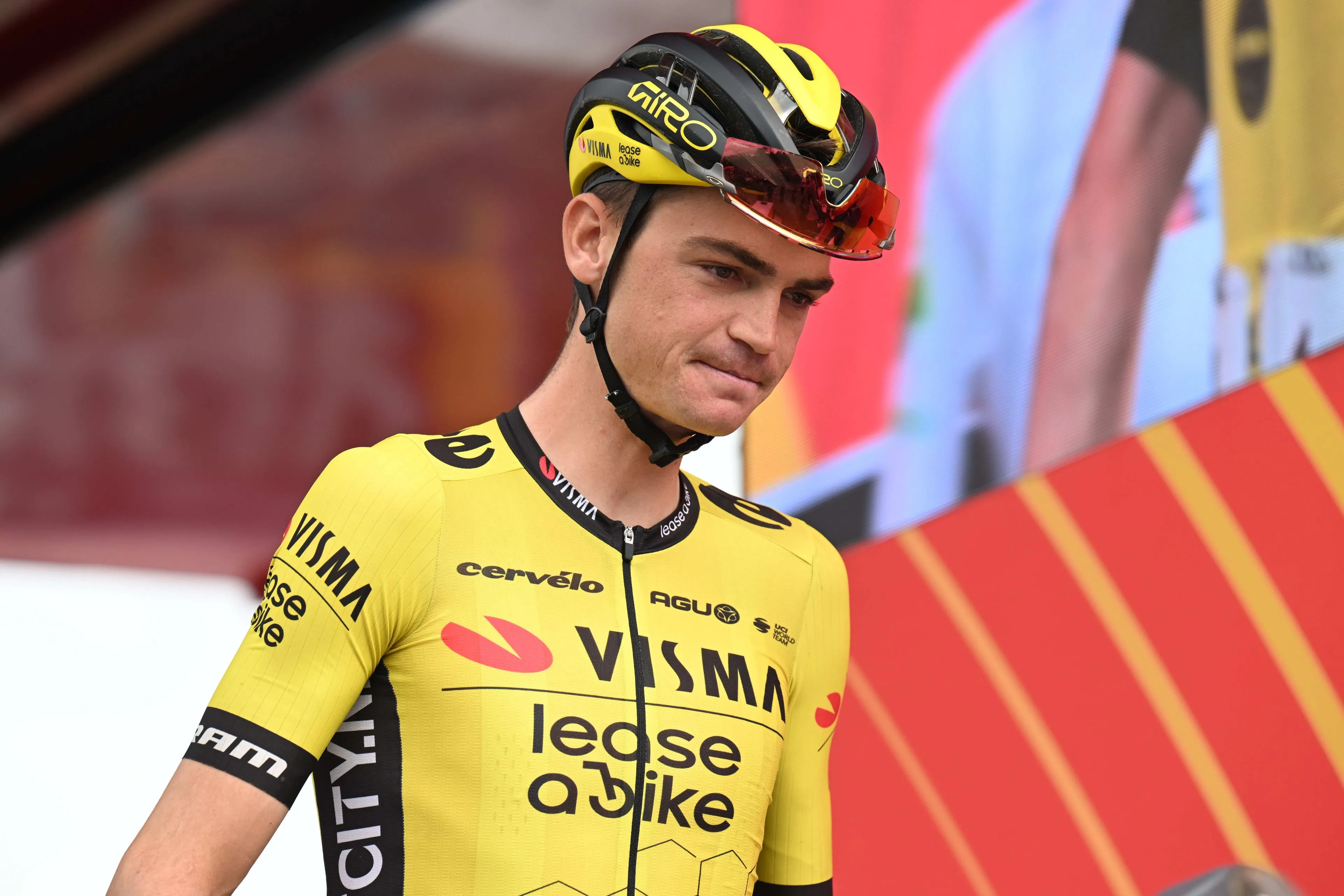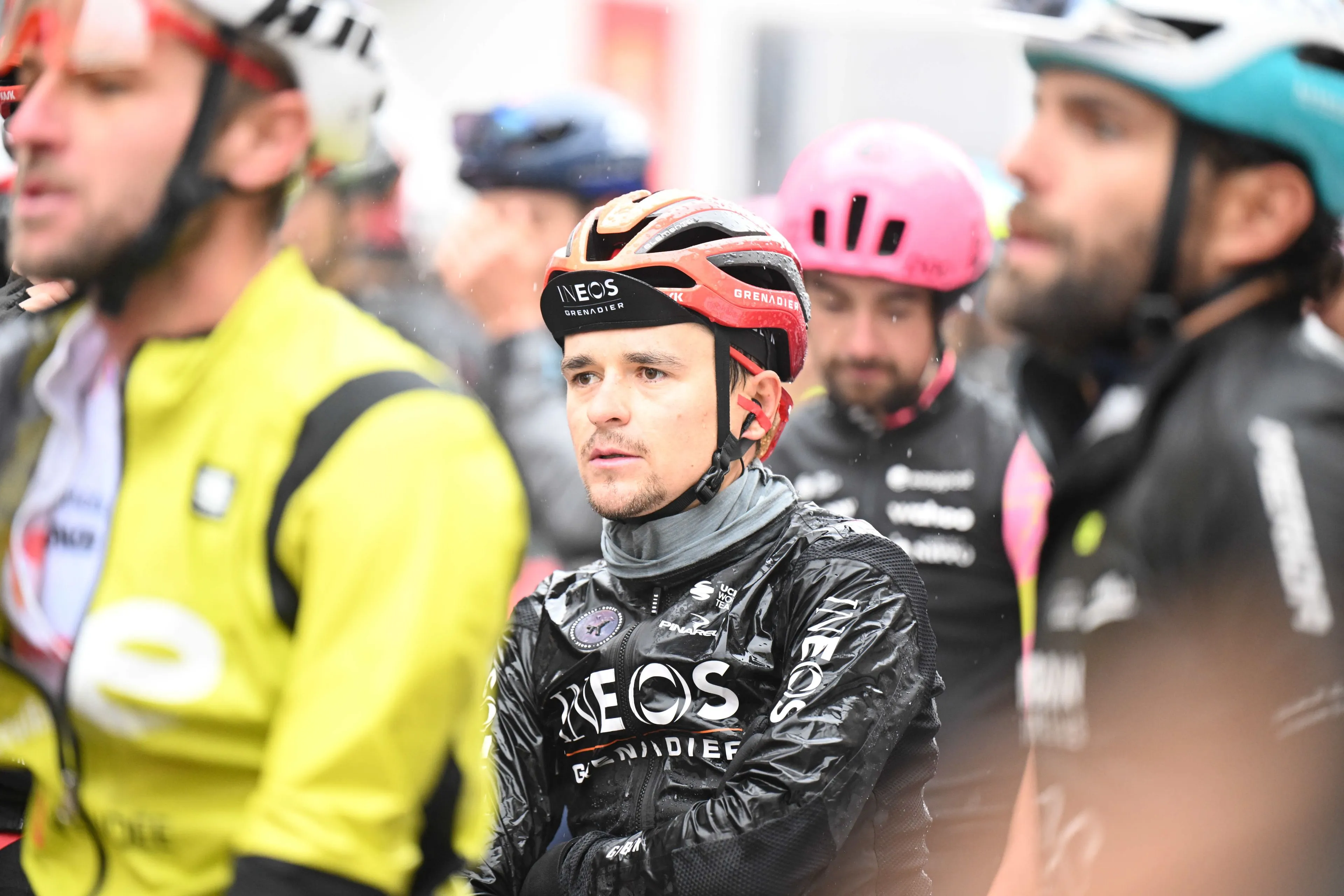How can Pogacar still deliver record-breaking performances? "At the World Championships, he was exhausted for the first time"
CyclingThursday, 10 October 2024 at 17:42Why is everyone else exhausted, but Pogacar keeps breaking records? "He crossed the finish smiling while the others were totally spent"

Tadej Pogacar's 2024 victory streak is virtually unparalleled. By now, much has bee said and written about it already, but it really seems there will be no end to his dominance. From March to October, the Slovenian has been unstoppable, with no sign of a decline in performance. Belgian top coach Paul Van Den Bosch explains to Het Nieuwsblad how this was possible.
This season, the Slovenian world champion has broken record after record. For example, in the Tour de France on the Plateau de Beille, he shattered Marco Pantani’s old record by being four minutes faster. But even later in the year, Pogacar’s level remained exceptionally high. In the rain-soaked Giro dell'Emilia, he left everyone in his wake. His attack on San Luca, according to Watts2Win, a website that analyzes cycling data, was even better than the one he launched on the same climb during this year’s Tour.
How is it possible that the UAE Team Emirates powerhouse is still so much better than the rest? "Pogacar is still, or rather once again, so good because he has followed the perfect cycle this season of balancing efforts with sufficient recovery and training to be ready for new peak performances," says Paul Van Den Bosch, coach of riders like Thibau Nys.
Read more below the photo!
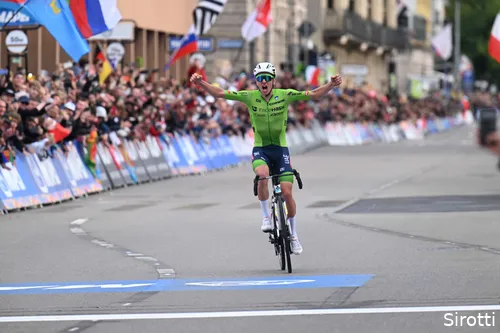
"He doesn't have to push as hard to win races"
"Pogacar’s exceptional talent is a major factor, which means he doesn't have to push as hard to win races, shortening his recovery time. During the World Championships road race, I saw him truly exhausted for the first time this season, with dull, sunken eyes as he crossed the finish line. In the Strade Bianche, after his 80-kilometer solo ride, he crossed the finish smiling, while the rest were totally spent. In Catalonia (where Pogacar won four stages and the overall classification, ed.), he achieved all his wins with ease. In the Giro, he didn’t need to push himself to the limit. Most riders need longer to recover after such a Giro, which would cause them to start the Tour with a training deficit. Not Pogacar. Five weeks were enough for him to recover and train sufficiently to be back at the top."
An ultra-precise season plan plays a significant role in the Tour winner's stellar year. To achieve the goal of a rainbow jersey, sacrifices had to be made. "Crucially, Pogacar skipped the Olympics after the Tour, allowing him another seven to eight weeks before his next race. He took a two-week vacation after the Tour and only resumed training when he felt hungry for it again. This mental recovery is also important."
Pogi still at his peak: "Remco made a different decision"
"He then prepared optimally for this final part of the season. Remco made a different decision, the right one, as it earned him two Olympic titles, but it’s logical that his performances aren't as good now. This happens with many riders because they race too much and train too little at the end of the season, leading to mental fatigue as well."
And while other riders are eagerly waiting for the season to end, Pogacar is still at full strength, able to leave his competitors in the dust. "The numbers from the Tour and Emilia remain calculations, but for me, his immense performance in the World Championships road race is solid, real proof that Pogacar shows no signs of decline," Van Den Bosch concludes.
Read also
IDL-productions

Bouwman not afraid to change at 32 after first disaster year outside of Visma: 'Have to be honest with myself'
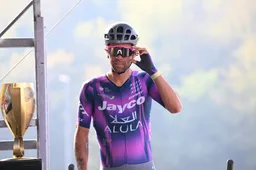
Sanremo, a world title and the yellow jersey: Michael Matthews escaped death - and that reignited his spark
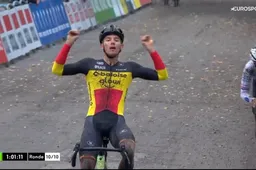
Unlike road colleagues Van der Poel or Van Aert, Nys rides twice as many cyclo-crosses: 'He doesn't want to ride only ten cyclo-crosses'
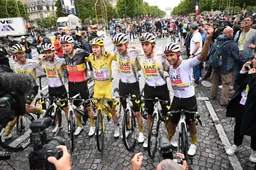
95 (or was it 97?) wins and a new record year, but losing that one race still hurts UAE Team Emirates - XRG

Former cyclocross world champion recalls wonderful memories of young Nys: "Back then we thought: that's not going to work out"
Latest Cycling News

How a nearly untraceable issue almost made Ferrand-Prévot retire: 'It easily ruined two years of her career'
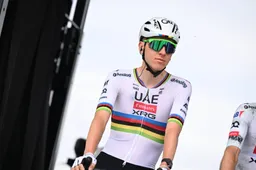
Tadej Pogacar again aims for Roubaix win... With help from F1 driver Sainz? 'Know I'm in good hands'
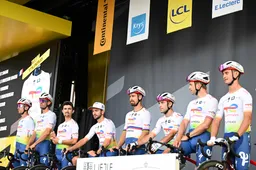
TotalEnergies slammed over former Lotto-chief appointment: 'Has abandoned his teams more often than he has helped them'
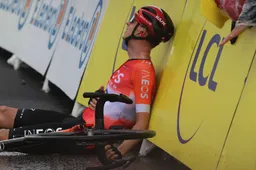
Why Arensman's two Tour stage wins are not his only highlight: 'Cycling only makes up a small percentage of it'
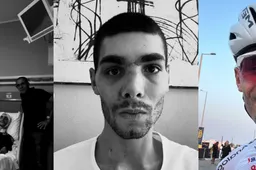
End-of-year message from Baroncini, straight from the heart: 'It was that feeling, if only for a moment'
Popular Cycling News

How a nearly untraceable issue almost made Ferrand-Prévot retire: 'It easily ruined two years of her career'
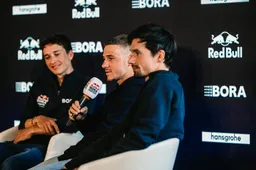
'We're not freelancers'; Primoz Roglic responds to choices within Red Bull, but also leaves opening

End-of-year message from Baroncini, straight from the heart: 'It was that feeling, if only for a moment'

Cian Uijtdebroeks tries to get 'calma, calma' in at Movistar

Tadej Pogacar again aims for Roubaix win... With help from F1 driver Sainz? 'Know I'm in good hands'
Latest Comments
- Those events are mental rest for him. Fun, without expectations. *Sagan lost his abilities because he gained weight and got lazy. Pogi will likely retire before that has a chance at happening.Veganpotter14-12-2025
- Ah, the consequences of riding for Israel.Veganpotter11-12-2025
- Pidcock could follow everyone but Pogi while finishing 3rd. No second place rider this season😃Veganpotter16-11-2025
- Now the Palestinian protestors can stop their whining. Trump came to the rescue. So they can now STFU and go back to waving the rainbow flags.raufus15-10-2025
- Cracked the code lol. If it was that easy to 'crack the code' jonny Vegas would be charging up the Kwaremont giving Pog a dose of his medicine. Evenepoel can't match pog on a climb and neither can mvdp. Anything with a half difficult climb and Pog smashes the field. Even on flat(ish)parcours like Roubaix it came down to a mistake and crash by pog to definitively crown mvdp. MSR is the only one that Pog probably won't win.kevpt10-10-2025
- We've seen this movie before. I think Pogacar is doping.DeadBlow10-10-2025
- 👍Bea08-10-2025
- 👌🏻Bea08-10-2025
- What the data doesn't show is how much of an effect drafting had for evenepoel. Pogacar went with del toro at 100km whilst Evenepoel was still in the bunch. Despite the bike changes he still had a lot of assistance getting back to the bunch. Pogacar then rode 60km solo whilst evenepoel rode with Healy/Skjelmose until going solo in thd last 10-15km. Thats ~20% less power / energy requirements for 45-50km. Apples and oranges...kevpt30-09-2025
- 👏👏Bea24-09-2025
Loading
